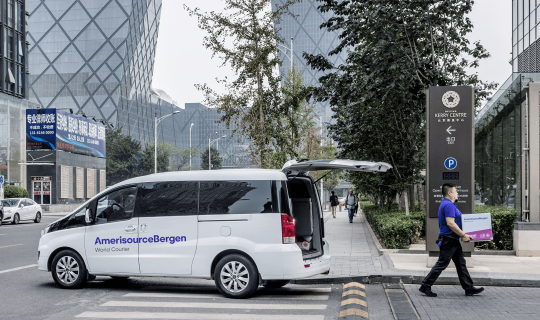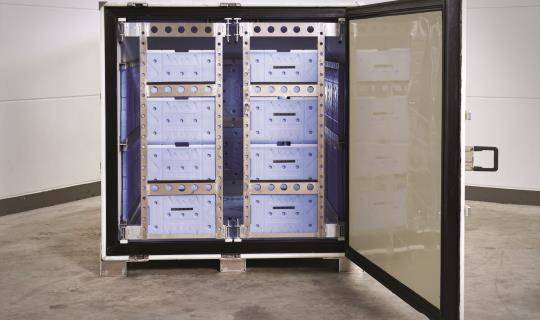Article: Japan - A Country Focus
By World Courier
This article first appeared on the Journal for Clinical Studies
So we all know something about Japan, right? It’s the land of Hello Kitty, Mount Fuji, Geishas, Sumo Wrestlers, Sushi and Kimonos. There are Shinkansen bullet trains and super-fast maglev trains, which during test runs achieved speeds of up to 500km/h (311mph). 5.2 million vending machines supply inhabitants with items as diverse as coffee, cigarettes, clothing and electronics. The most photographed wildlife on earth are the spa-dwelling snow monkeys of Jigokudani National Park.
There is so much more to Japan than that: 6852 islands, with 70% of the landmass covered in mountains. It’s prone to earthquakes and the occasional volcanic eruption and tsunamis have been an issue for thousands of years. Despite its position in the Pacific ring of fire and slightly unstable geography, it has a very stable population – the 11th largest globally at 127 million – with outstanding life expectancy of 80.5 years for men and 86.83 years for women, putting it right at the head of global league tables. Around 50,000 people are over 100, with Shimane and Okinawa Prefectures having the highest rates.
The low birth rate and high life expectancy are leading to an increasingly aging population, regardless of the country having the third-highest suicide rates in the OECD, perhaps because suicide is viewed as a morally responsible action.
According to the Japanese immigration ministry, the number of foreign residents in Japan has steadily increased, and the number of foreign residents now exceeds 2.2 million people. They are much more likely to retain foreign citizenship, with few of them taking Japanese citizenship, which may be influenced by the legal requirement to take a name using the Japanese character sets hiragana, katakana, and/or kanji. Names are extremely important in Japan and the country has one of the highest adoption rates in the world. Though different types of adoption occur in Japan (over 81,000 legal, domestic adoptions were brokered in Japan in 2011), adoption to secure a familial heir is the most prevalent, which requires taking the family name.
Japan is a world leader in robotics, and the world’s largest car manufacturer. Japanese companies have been responsible for a number of important innovations, including the Sony Walkman, the VHS recorder, solar cells and LCD screens. Toshiba produced the first mass- produced laptops. There have been 19 Nobel prize winners since 1949. Notably, after winning the 2012 Nobel Prize for Physiology or Medicine Dr Shinya Yamanaka discovered IPS cells, genetically reprogramming ordinary human skin cells to an embryonic state, meaning that they can reproduce indefinitely, and dramatically reducing timelines for successful regenerative medicine research.
"Japan is the also world’s second-largest single-country pharmaceutical market, accounting for approximately 10 per cent of global drug sales and expanding quickly. 2013 sales were estimated at $115 billion according to Deloitte."
Users of medical services pay between 10% and 30% of costs, with the government picking up the remainder. For those without employer insurance, there is a fall-back insurance administered by local government. Hospitals have to be run as non-profit and by national law must be managed by physicians. Disease profile is evolving with rising cancer and heart disease rates, as people live longer, modify their traditional diet and become more sedentary.
The Japan Pharmaceutical Manufacturers Association has existed for almost 50 years and has 73 research-oriented pharmaceutical companies (as of November, 2015). The Federation of Pharmaceutical Manufacturers’ Associations of Japan consists of 82 wholesale companies organised by members of regional cooperative societies. They exist in a symbiotic relationship of producer, supplier and distributor. Japan spends only 8.3 per cent of its total GDP on health, according to the World Bank, and of that, more than 80 per cent is public expenditure that has been decreasing in real terms. It undergoes a biennial pricing review of drugs and services leading to extremely cost- efficient practices. A new health technology assessment (HTA), which is due to be implemented in 2016, will restrict the launch pricing (and market access) unless the new treatment is deemed innovative and cost-effective. A temporary premium for new drug development was introduced in 2010, and this premium rewards R&D innovation by supporting prices for patented drugs that would otherwise be reduced in the biennial revisions.
All this creates a climate ripe for both drug discovery and for clinical research, with both domestic and international clinical trials. To date, around 4000 have taken place. Previously there was a serious delay in drug approval between USA and Europe and Japan, so the Pharmaceutical and Medical Devices Agency was set up in 2004. From clinical trial application to the agency, it takes a minimum of 30 days for the PMDA to review. Many companies opt for a pre-consultation route with them which, whilst costly, improves submission times and approval rates. As might be expected from a technologically advanced society, digital marketing and promotion has bypassed traditional marketing and clinical trial recruitment methods.

Shipping into Japan has some unique challenges. Accuracy is imperative on all paperwork, with every component of a shipment declared specifically with an associated value. The majority of shipments will require an import license or import authorisation (permit) issued by the Ministry Of Health. The import permit is applied by the importer on/after shipment arrival and the process may take a few days or more depending on the importer. In addition, a statement from the consignee is required, including an explanation sheet of the contents for most chemical substances. Clearance normally takes around four hours. Customs operate on Monday to Friday, but weekend clearances can normally be arranged at Narita airport, subject to overtime payment, and depending on the contents.
"Temperature recorders sent along with shipments to Japan must be declared to customs by the shipper as an extra item on the product invoice and are subject to 8% VAT."
Clearance delays will occur if customs find a non- declared logger during inspection. This is only applicable to temp loggers sent along to measure the product temp, not to loggers which are part of multiuse packaging like those integral to active containers.
Narita Airport is the preferred destination airport rather than Haneda generally as the processes for clearance are more robust and the staff more experienced in handling the specialist paperwork. At both airports, temperature- controlled options are different depending on the building / handling companies. It is critical to check prior to sending so that appropriate arrangements can be made as necessary.
Dry ice can be added whilst a shipment is under customs. This is performed by airline staff normally, except for arrivals on Virgin airlines. Customs have a -15°C freezer. Gel packs cannot be changed under customs, but there is +5°C fridge available.
A note of caution when shipping multi-use packaging into Japan through all ports: Such packaging is subject to duty (3.5%) and tax (8.0%) of CIF value. Sometimes customs charge this percentage on a reduced value for the boxes but they may also increase the value up to new purchase amount.
Japan is a controlled environment for running trials, with a predictable regulatory regime, predetermined costs, and controllable expectations for shipping. With the value of spend on pharmaceuticals, particularly new and innovative drugs, every company should include it on their plans for both clinical trials and for ongoing marketing and development.



